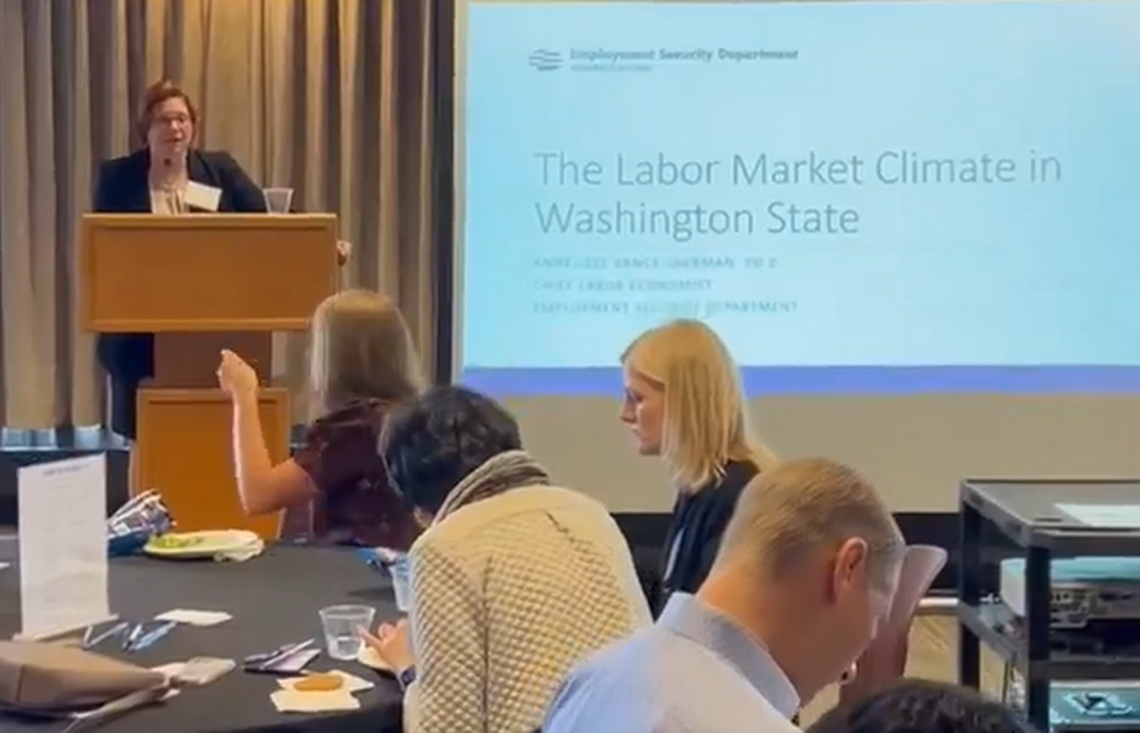Annual Event Promotes Financial Literacy in Washington
Every year, Western Washington University brings together educators, policymakers, and stakeholders for the Washington Economics Symposium. This event features panels and workshops focused on enhancing students’ financial literacy. The symposium aims to foster collaboration among professionals who typically work in isolation. Adam Wright, an associate professor of economics at WWU and the symposium’s organizer, emphasizes the importance of such gatherings in light of current financial trends.
Wright highlights that household debt has reached record levels. According to a report from the New York Federal Reserve, as of the first quarter of 2025, total household debt stood at $18.2 trillion, with $1.1 trillion attributed to credit card debt. He notes that this issue was not as significant in the past, as people historically did better than their parents.
Washington is one of nine U.S. states that do not require high school students to take a personal finance or economics course. However, there are ongoing efforts to change this. The Washington State Board of Education has formed a task force to update high school graduation requirements, with a focus on financial literacy. The group plans to submit a legislative proposal during the 2027 legislative session. Additionally, the Washington Office of Superintendent of Public Instruction has a branch called the Financial Education Public-Private Partnership, which offers training and grants to teachers interested in incorporating financial education into their classrooms.
Legislative efforts have also been made in the past. During the most recent legislative session earlier this year, two bills—HB 1285 and SB 5080—aimed at making financial education a high school graduation requirement. However, these bills never left committee. Christy Johnson, a symposium moderator and CEO of Artemis Connection, noted that teacher unions have opposed these measures.
Johnson explained that teacher unions have significant influence and often view additional requirements like personal finance as unfunded mandates. She stated that teachers feel they lack the necessary support, training, or compensation to implement these new requirements effectively.
High school teacher Kiera O’Brien, a member of the Vancouver Education Association and Future Ready Task Force, expressed a different concern. She emphasized the need for a comprehensive approach when implementing changes. O’Brien argued that rushing into a financial literacy requirement without proper planning could be detrimental, especially across an entire state with large student populations.
Despite the lack of mandatory financial education, some schools are still providing it. Last year, WECU, a teacher-created credit union, offered students interactive financial training. Bellingham Public Schools is also exploring the addition of a high-school level financial education course, according to Dana Smith, assistant director of communications at Bellingham Public Schools.
Smith acknowledged the frustration educators feel when lawmakers introduce what is known as an “unfunded mandate.” However, she emphasized the importance of financial literacy in preparing students for life after high school. She noted that while funding and personnel are critical, the subject remains vital for students.
Wright, the symposium organizer, hopes the event will contribute to the ongoing conversation about graduation requirements in Washington. He stressed the importance of taking time to get things right rather than rushing into a potentially flawed implementation. Wright believes that thoughtful and thorough planning is essential to ensure that financial education benefits students effectively.







